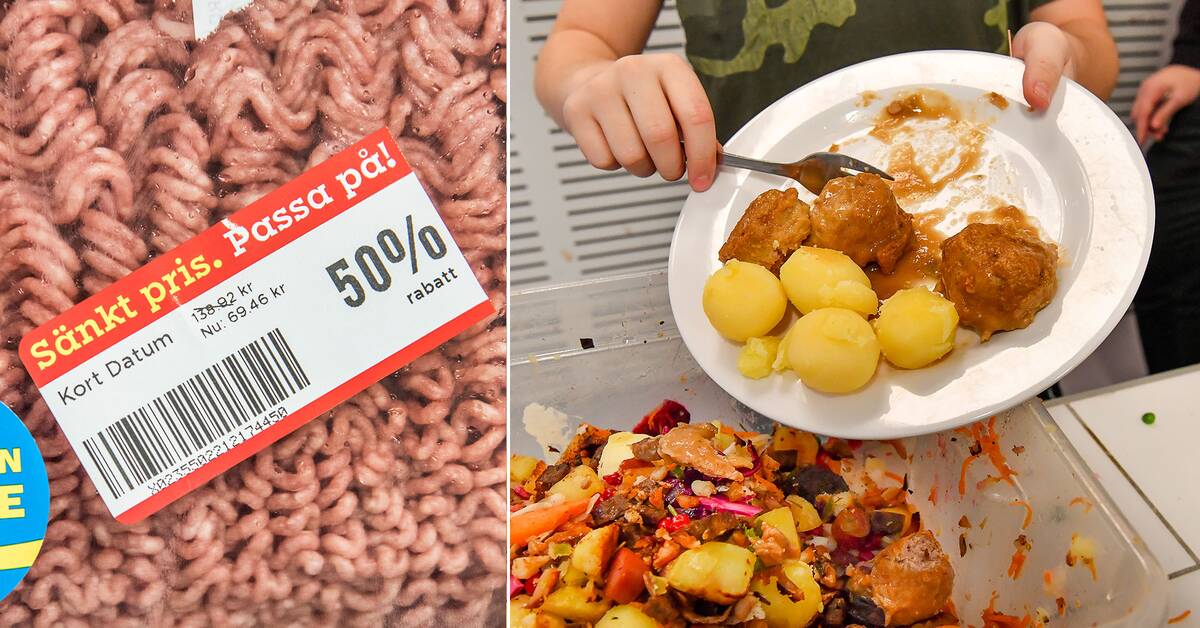About a third of the food produced in the world is thrown away.
This corresponds to between 8 and 10 percent of all greenhouse gas emissions, according to the National Food Administration.
In Sweden alone, about one million tonnes of food are thrown away every year.
But statistics from the Swedish Environmental Protection Agency show that Swedish households are getting better at reducing their food waste.
Reduced by 20,000 tonnes
Previously, every Swede threw away an average of 19 kilos of food that could have been eaten per year - now the figure is down to 17 kilos.
For the entire population, this corresponds to around 20,000 tonnes - or just over 130 adult blue whales.
- It is still a huge problem for the climate, the environment and the wallet, but stopping throwing food is one of the easiest things we can do to take care of our planet, says Karin Fritz.
According to Karin Fritz, the decrease is due to a change in behavior.
- We do not know exactly what they have started to do differently, but it is a proof that awareness has increased, she says.
Halve food waste by 2030
Sweden's goal is to halve food waste by 2030 - this means that food waste will be reduced to 8.5 kilos per person and year.
- Then we need to increase the pace.
More people need to work to inspire and inform consumers about how to reduce food waste at home.
Everyone who can must work to make it easy to do the right thing.
But I am positive - if we continue like this, we will succeed.
Karin Fritz's best tip for reducing food waste is to lower the temperature in the refrigerator to four degrees and smell and taste before throwing away food.
- We have stopped using common sense and do not trust ourselves.
It's so easy to throw away the food because it's easy to buy new food.
We need to come back to respecting food, valuing it higher, giving it a second chance and using our senses.
Javascript is disabled
Javascript must be turned on to play video
Read more about browser support
- If you have a little tired carrot, you can put it in cold water, says food waste expert Karin Fritz.

